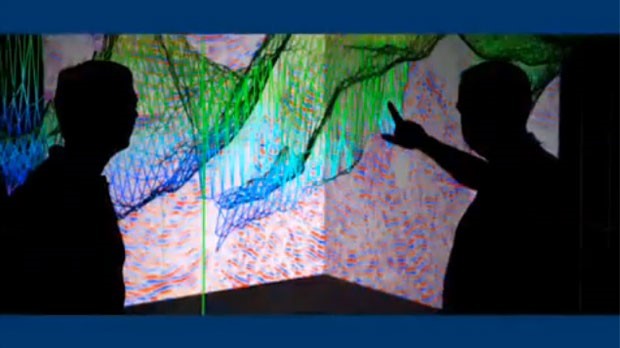IBM will help Russian companies in exploration and oil production

Our company is engaged in many different projects in various fields. This includes creating the concept of smart cities , improving the quality of children's education , developing a new type of memory , creating new methods to prevent hacking of computer systems . Now we have decided to take part in the new project, which is directly related to the exploration work in Russia. As part of this project, it is planned to create new IT tools and software to optimize the processes of geological exploration. In addition, this project is related to the design, development and operation of oil fields.
The importance of oil production in the Russian Federation, this can not be denied. Therefore, together with Gazprom Neft, we have begun to work together to optimize the methods of various oil production processes. In the course of this work, IBM services will be used for cognitive data analysis, machine learning and processing large amounts of data. These technologies, as experts expect, will help to find new ways to improve the efficiency of field development with a simultaneous increase in oil recovery. This, in turn, will reduce the cost of exploration and oil production.

')
To test all of the above, a pilot project has been selected: optimization of the waterflooding process in a number of mature fields of Gazprom Neft. Success criteria will be considered to be a reduction in injection volumes and an increase in oil recovery factor (CIN). Flooding is the method of maintaining reservoir pressure by pumping water into the reservoir.
“Digital technologies are changing our whole lives, including the approaches of oil companies to the choice of options for the development and operation of fields. The newest methods of working with information make it possible to increase the efficiency of using the data collected at the fields, and to make on the basis of them more elaborate and balanced decisions. This is precisely the goal of our Technological Strategy - to optimize the development of assets with the help of modern information technologies, ”said Vadim Yakovlev, First Deputy Director General of Gazprom Neft.

“Technological cooperation projects allow for synergies in applied industrial research. Seeing the enormous scientific potential of Russia, we are pleased to join efforts with Gazprom Neft in the development of the latest information solutions for the oil and gas industry, ”comments the project John Brantley, IBM general manager for chemistry and petrochemistry.
To work in this area, our company has a division of " Chemistry and petroleum products ." It offers a range of solutions and tools to improve the efficiency of companies that work in this area. IBM's cognitive technologies, including the IBM Watson system, help analyze and structure huge amounts of information. For example, we help to combine and unify data from various sources: the company's internal documentation, hundreds of books and magazines, publications of scientists and specialists in chemistry and petrochemistry.
Watson can answer questions about equipment, methods, and procedures related to the oil and gas industry. A cognitive system can extract important elements from unstructured data sets such as transaction logs, industrial system maintenance data, reports, and research.
Here are examples of questions that IBM Watson can answer: “Who is an expert in the field of exploration and oil production in the Arctic latitudes?” Or “What kind of oil production operations and how many were carried out in the Gulf of Mexico?”. The system gives answers instantly.
Gazprom Neft is not the first oil producing company with which IBM works. Back in 2014, we started working with Repsol , helping the Spanish energy company to increase the efficiency of investing in its own development. In particular, cognitive computing helped optimize the mass of Repsol business processes. We also helped the Australian company Woodside to improve the work of management objects in their infrastructure. All these projects were successful, and we decided to implement a new project, already in cooperation with Russian partners.
Source: https://habr.com/ru/post/151092/
All Articles